In 1958, while collecting information and documents to gain inspiration for a composition contest on the topic of Southern girls, musician Nguyen Duc Toan read the story of Vo Thi Sau in the work "Vuot Con Dao" by writer Phung Quan. An extremely valuable detail for the musician was that in her childhood, Sau loved to play with ki ma pear flowers. Although up to that time, Nguyen Duc Toan did not know what ki ma pear tree was, nor had he ever visited Vo Thi Sau's grave, but with his infinite gratitude to the heroine, in the overflowing emotions, the talented musician from Ha Thanh had a song for life:
“When the pear blossoms bloom, in our homeland, the red soil, the villages still mention the name of the hero who died for the pear blossoms. Future generations still remember, the mountains and rivers of the country are grateful to the hero who died for future generations.
That young woman was like spring, she devoted her whole life to fighting with so much faith, even in death she did not retreat. Sister Sau had sacrificed, her voice still resonated in the hearts of those who were still living, urging them to move forward and never retreat.
Though the pear blossoms bloom, the green grave still sobs, while the country is still divided into two regions, when will the night come for the flowers to bloom? Spring spreads across the land, I come to sing before the deep grave of the heroine.
The work “Grateful to Sister Vo Thi Sau” is not too long, less than 150 words, divided into 3 parts with a tight and concise content and structure. In the first part, the song opens with a gentle, passionate, narrative melody: "The season of pear blossoms blooming, in my hometown of red soil, the village still mentions the name of the hero who died for the season of pear blossoms blooming". With that gentle opening, combined with familiar and simple lyrics: "flower season", "hometown", "land", "village", the author soon won the sympathy of the listener to enter a peaceful and peaceful red soil countryside of the South. The second sentence of the first part "The mountains and rivers, the country thank the hero who died for future generations" repeats the melody of the first sentence, but the lyrics have been pushed to a more expansive, general, and immense range of emotions with "mountains and rivers", "country", from "the hero who died for the pear blossoms to bloom" has been raised to "the hero who died for future generations". This is not only an affirmation and honor to the hero Vo Thi Sau but also shows the author's ingenuity in developing the first musical idea in such a natural and obvious way.
From the fulcrum of narrative, the song moves to the second part with a brighter high note, making the melody more catchy and attractive: "That young woman is like spring, she has devoted her whole life, to fight with so many beliefs, even in death she will not retreat". The emotional flow is developed in the field of association from the pear flower, symbolizing the spring of the earth and sky to the young woman symbolizing the spring of youth. And that youth is to dedicate to the mountains, rivers, and country with burning beliefs, the courage to not retreat "even in death she will not retreat". From the pure, strong melody, the tragic and praising nature is clearly revealed when the second verse resounds like the chorus "Sister Sau has sacrificed, her voice still resonates in the hearts of those who are living, urging them to move forward and never retreat". Through the lyrics, the image of the young and brave Sister Sau is engraved in the hearts of the living as a brave example of "not retreating even in death", encouraging and urging people's will and determination to "move forward without retreating". The musical melody of the first verse is still the same, but the lyrics and tone of the next verse are stronger and more determined, excellently completing the task of concluding the entire climax of the work.
The ending of the song brings us back to the intimate rhythm, whispering "Although the pear blossoms bloom, the green grave still sobs, when the country is still divided into two regions, when will the night come for the other flowers to bloom?" The contrasting images between "the pear blossoms bloom" and "the green grave" along with the way of singing, the repetition of the word "bloom" at the beginning and end of the sentence with the sound "sob" in the middle of the sentence seem to forever prolong the association of the author's and the listener's repressed regret, not daring to express it in words, about the departure of the heroine when her hair was still green. The precious thing is that although it is sad, the song does not bring sadness or despair, but ends with lyrics and ideas full of trust and hope for a bright future for the homeland and country "Spring spreads across the land, I come to sing before the deep grave of the heroine". Sister Sau's sacrifice was never meaningless. She sacrificed to fight for the independence and freedom of the nation. She sacrificed so that fragrant flowers and sweet fruits would bloom forever, so that people's hearts would always awaken with determination and courage, so that the song would continue on the lips of those who love freedom and love justice!
“Being grateful to Vo Thi Sau” is a song about a heroic historical story whose central character is the heroine Vo Thi Sau. Overcoming the sentimental or dramatic storytelling style, musician Nguyen Duc Toan has succeeded in skillfully portraying and evaluating the character with simple language, gentle and passionate rhythm, conveying emotions to the listener, evoking pride and gratitude to the heroine. In the midst of her youthful, beautiful, dreamy and romantic age, she joined the resistance war to protect her homeland and fell right on her own land. Although she sacrificed her life, her example will forever be immortal in the hearts of the living. She has transformed into each flower petal, in the spring of the country. And then every spring, the pear blossoms bloom again, making people feel moved, moved, and remember her - the heroine.
As a typical, exemplary, and perfect crystallization of the art of exploiting historical themes, genuine emotions, and the creative talent of the artist - soldier, the song "Grateful to Ms. Vo Thi Sau" has touched the hearts of millions of patriotic Vietnamese people. More than 60 years have passed, but the song is still loved by the public and is firmly ranked among the top musical works of modern Vietnamese revolutionary music in the 20th century. Many professional and amateur singers have built their reputations thanks to singing this song, the most successful of which is probably Meritorious Artist Thanh Thuy. The song helped Thanh Thuy win an award at the Ho Chi Minh City Television Singing Contest in 1994, and was also invited by director Le Dan to play the role of Vo Thi Sau in the film "The Red Land Girl" in 1995. In 2000, musician Nguyen Duc Toan was awarded the Ho Chi Minh Prize for Literature and Arts for a series of 6 works, including "Grateful to Ms. Vo Thi Sau".
Thanh Mai
Source
















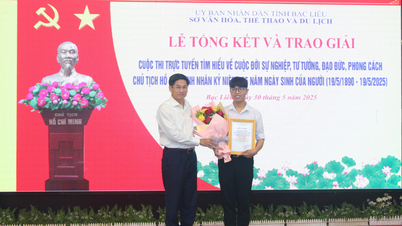
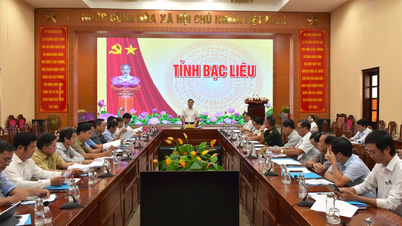


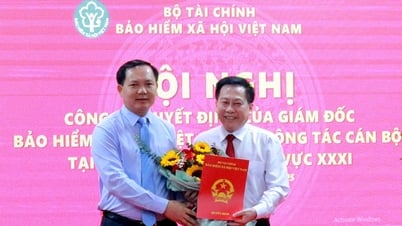
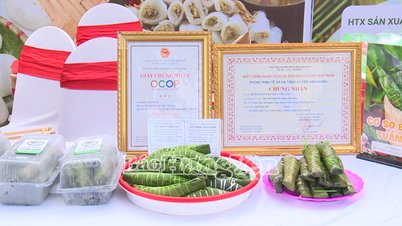






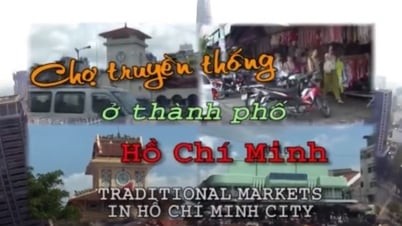







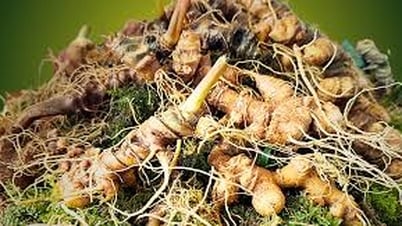
















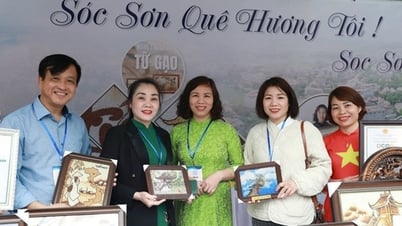





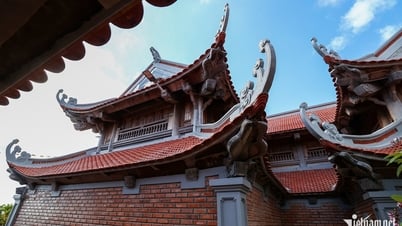










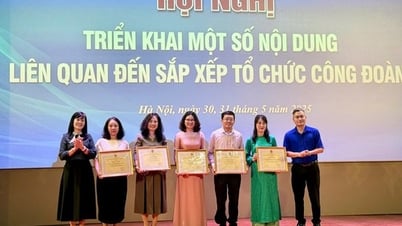
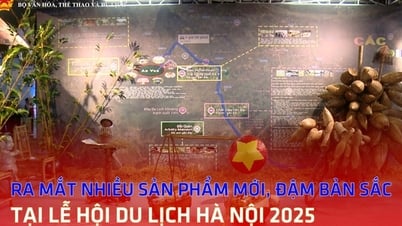





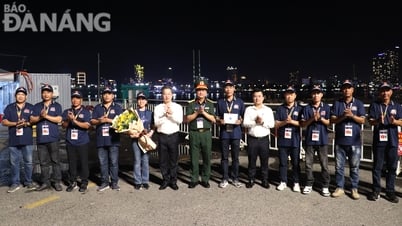

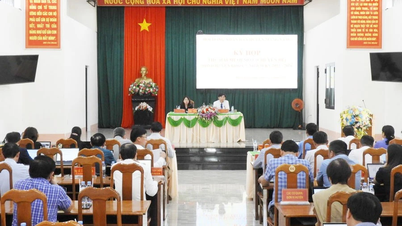

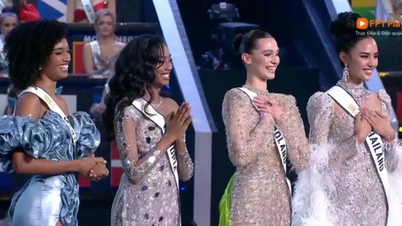















Comment (0)